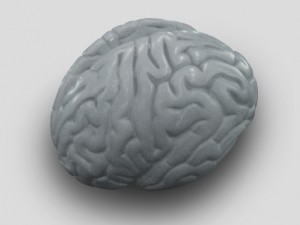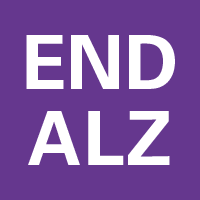
Mark your calendars – March 14 – 20 is Brain Awareness Week. , According to The Dana Foundation, Brain Awareness Week “is the global campaign to increase public awareness of the progress and benefits of brain research.”
Many of the conditions benefiting from further research continue to ail our elderly population. Alzheimers and Parkinson’s disease both deal with complications related to the brain – and more analysis is needed to better combat and minimize their negative effects.
Our brain is our connection to the world around us – our memory, mind, and ability to learn how to shape the foundations of society and our perception of life itself. So just how important is it to better understand its functions as we age?
Very. Alzheimers affects five million Americans, while Parkinson’s takes its toll on one million, and the occurrence of both increases in rate as we age. Finding treatments to halt or reverse neurodegenerative diseases is the ultimate goal of much brain research. Identifying protective genes or lifestyle factors that contribute to these problems gives us a much greater chance at treatment options, and potentially even a cure.
You may be asking how we can better protect our brain while we age. The Dana Foundation states, “Experts estimate that just 30 percent of aging is genetically programmed. The rest depends on the cumulative impact of inner and outer environments — factors we can largely control.” – This means a great deal of our potential is in our own hands.
To help improve or positively impact our brain health here are a few things to consider:
- Eating healthy foods and staying active are clear, cumulative ways to keep your entire body (brain included) in a better shape – but it’s just as important to stay mentally active and connected.
- Spending time interacting with our loved ones is a great way to maintain cognitive edge, as is keeping mentally engaged: “Learning forms new connections between neurons at any age, and keeps brain chemicals flowing. Richer neuron networks provide a backup, or “cognitive reserve,” to preserve brain function longer despite damage by stroke or disease.
Exploring unfamiliar ground — for example, learning a foreign language or musical instrument — can be especially beneficial.
At PLC, we have a mindset that allows for individual, personalized care needs – whatever our resident’s mental state may be. For more information, visit our website.
World Alzheimer’s Month Awareness
The month of September is dedicated to raising awareness of Alzheimer’s disease and challenging its stigma. The initiative was originally launched in 2012. The goal is to unite opinion leaders, people with dementia, caregivers and family, medical professionals, researchers and the media. This campaign provides opportunity for Alzheimer’s associations internationally to gain recognition and credibility for the work they do, but it’s also an excellent occasion to have some fun and participate.

The stigma and misinformation surrounding dementia continues to be a problem globally. This year’s campaign theme is “Remember Me.” The campaign encourages us to learn how to spot the signs of dementia, but also to not forget about loved ones living with dementia, or who have passed.
Many of our residents at Paradise Living Centers live with dementia and our team is fully qualified to address the needs of those residents. We pride ourselves on being able to offer care that makes a difference in not only the residents’ lives but their families too. Our Care Manager, Kristie Chadwick is a Certified Dementia Practitioner. She is actively involved with the Alzheimer’s Association’s dementia division and has participated in several of their Walk to End Alzheimer’s events.
At Paradise Living Centers, we help our residents and their loved ones learn about dementia but many have little or no understanding of the condition. In this blog we are taking this year’s campaign message, “Remember Me” to heart and highlighting some of the stats and facts that represent the global impact of Alzheimer’s and dementia. Here are just some of the numbers that you may not be aware of:
- By 2050, 131.5 million people will be living with dementia
- Every three seconds someone in the world develops dementia
- Two out three people globally believe there is little or no understanding of dementia in their countries
While there are just a few days left in the month of September, we encourage you to share what you’ve learned about Alzheimer’s with a colleague, friend or family member to spread the campaign message. It is up to us to remember for those who cannot.
Warning signs of Dementia and Alzheimer’s disease
 A popular misconception about aging is that senior moments are common and considered a normal part of getting older. While an occasional senior moment can be expected, if your loved one is frequently having difficulty with his or her memory it may be a warning sign of dementia or the onset of Alzheimer’s disease.
A popular misconception about aging is that senior moments are common and considered a normal part of getting older. While an occasional senior moment can be expected, if your loved one is frequently having difficulty with his or her memory it may be a warning sign of dementia or the onset of Alzheimer’s disease.
Dementia is a group of symptoms that affect mental tasks like memory and reasoning. This impairment interferes with a person’s ability to do things which he or she was previously able to do. Alzheimer’s, on the other hand, is a progressive disease of the brain that slowly impairs memory and cognitive function.
Memory loss is the main warning sign for both dementia and Alzheimer’s disease, but there are others you should watch for:
If your loved one has two or more of the following symptoms it may be considered dementia:
- Memory loss that interrupts daily life
- Difficulty speaking or writing
- Loss of focus and inability to pay attention
- Decreased or poor judgment
- Trouble understanding visual images and recognizing spatial relationships
Alzheimer’s disease shares similar signs to dementia, although there are a few others to be aware of that may present themselves in varying degrees:
- Challenges planning or solving problems
- Difficulty completing familiar tasks at home, at work or at leisure
- Confusion with time or place
- Misplacing things and losing the ability to retrace steps
- Withdrawal from work or social activities
- Changes in mood and personality
If your loved one exhibits any of these signs, consult his or her doctor for diagnosis and to learn more about treatment options.
*Source: Alzheimer’s Association


 A popular misconception about aging is that senior moments are common and considered a normal part of getting older. While an occasional senior moment can be expected, if your loved one is frequently having difficulty with his or her memory it may be a warning
A popular misconception about aging is that senior moments are common and considered a normal part of getting older. While an occasional senior moment can be expected, if your loved one is frequently having difficulty with his or her memory it may be a warning